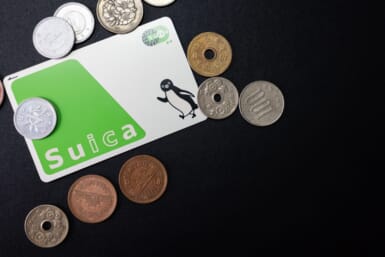Deadlines being what they are, I returned last month from a trip overseas, rushed upstairs to my office, wrote an innocuous Weekender column welcoming newcomers to Japan and faxed it off literally minutes before the printers slammed the gates shut. I then went downstairs, turned on the TV and suddenly it was there—the horror in New York and Washington.
There is certainly nothing I can add to the volume of written and oral comments about the acts of terrorism exploding into our lives. Surprisingly few reports were banal. Most were sublimely eloquent. Heroes emerging from the events of that awful day range from the common man on the street (or in the planes), through the New York City police and firemen, mayors, governors, all the way up to President George W. Bush. Altruism in such dramatic display uplifts us all. (And I would do the same thing if on the spot. Would I? Yes. Really? I think so. You? Well, I hope so.)
If there is nothing to add, why write about it? I think it has to be written about in order to maintain focus. If anything, this column is not too late—the events took place three weeks ago—instead the column is too early. We are facing major hurdles ahead, and our commitment must be as strong a year from now in this brave new world as it is today.
We are now bathing in an odd but unifying euphoria that is part patriotism, part anger, part frustration and part genuine concern for democratic, free-world institutions clearly at risk. Letters pour in from around the world offering condolences and support. Everyone is involved.
Fifty or 60 countries lost people in the World Trade Center. President Bush’s approval rating is around 90 percent—higher probably than anything enjoyed by George Washington. (Pilots toting machine guns? If we’re not careful in this atmosphere, the concept could be approved.).
As time goes by, however, the “war” against terrorism will disappear from the headlines. The battles will be furtive, dirty, expensive and not something one reads about over toast and coffee at breakfast. There will be major successes, which we’ll probably not hear about for a long time, and colossal screw-ups (which, given the way things seem to work, we will hear about).
In the meantime, relationships with countries around the world will be dictated to a great extent by the secret needs and demands of this new “war,” not by the obvious issues involving trade, human rights and political posture. We have to live with it.
It is then we have to worry about the paint of commitment becoming old and beginning to flake around the edges. A trusted ally refusing to cooperate. A demonstration regarding child slave labor in the country of one of our new partners. A congressional enquiry into covert military actions. A request for a more transparent budgeting process.
And when results do not become obvious (in months?), a call for change in U.S. political leadership. Then the next act of terrorism hits. Will all our friends still be around? Will the free world be as unified then as now? Especially if the event is a gritty little episode far from the floodlights of New York City?
None of this is meant to be a “downer” during this period of high principles and firm resolve. The all-time “downer” happened on Sept. 11. It’s just that we’re off into something new, and we have to remain focused. Remembering our feelings and beliefs now must be part of our commitment for the future. We only go around once on this earth, folks, so we’d better get it right the first time.









